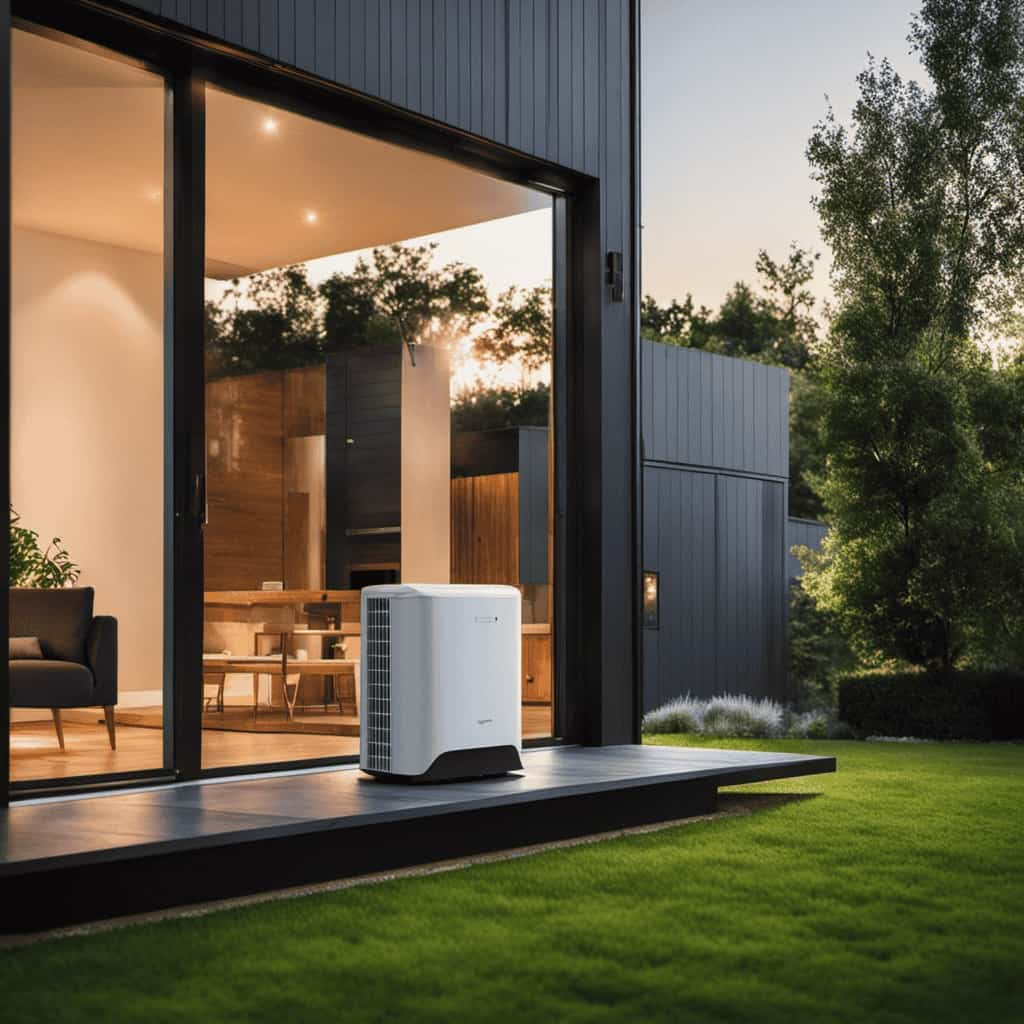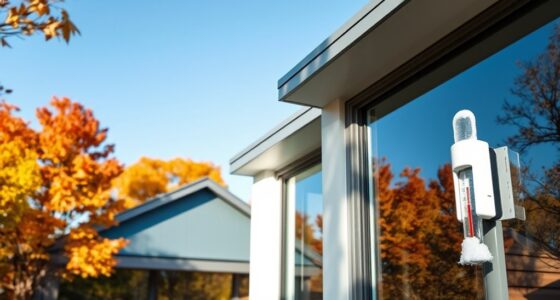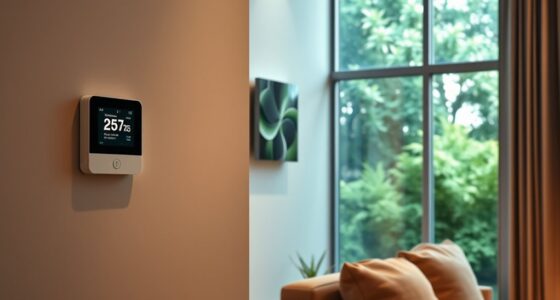Tired of paying too much for your energy bills? We have the perfect solution: heat pumps! By switching to heat pumps, you can reduce your bills and keep more money in your pocket.
In this comprehensive guide, we’ll walk you through everything you need to know about heat pumps and how they can increase your energy efficiency.
From choosing the right size to optimizing settings, insulation, financing options, and troubleshooting, we’ve got you covered.
Let’s start saving together!

Key Takeaways
- Heat pumps are more energy-efficient and environmentally friendly compared to traditional heating and cooling systems.
- Regular maintenance and energy-saving tips can further enhance the energy efficiency of heat pumps.
- Choosing the right size heat pump is crucial for optimal energy efficiency and cost savings.
- Setting the ideal temperature balance, using the fan efficiently, and programming thermostat schedules can maximize savings on energy bills.
Understanding Heat Pumps: A Comprehensive Guide
We will now explore the comprehensive guide to understanding heat pumps.
Heat pump maintenance is an essential part of keeping your system running efficiently and effectively. Regular inspections, cleaning, and filter changes can help prevent breakdowns and extend the lifespan of your heat pump.
It’s also important to compare heat pumps to traditional HVAC systems. Heat pumps are more energy-efficient and environmentally friendly, as they transfer heat instead of generating it. They can both heat and cool your home, providing year-round comfort.
Additionally, heat pumps can save you money on your energy bills by reducing your reliance on fossil fuels.
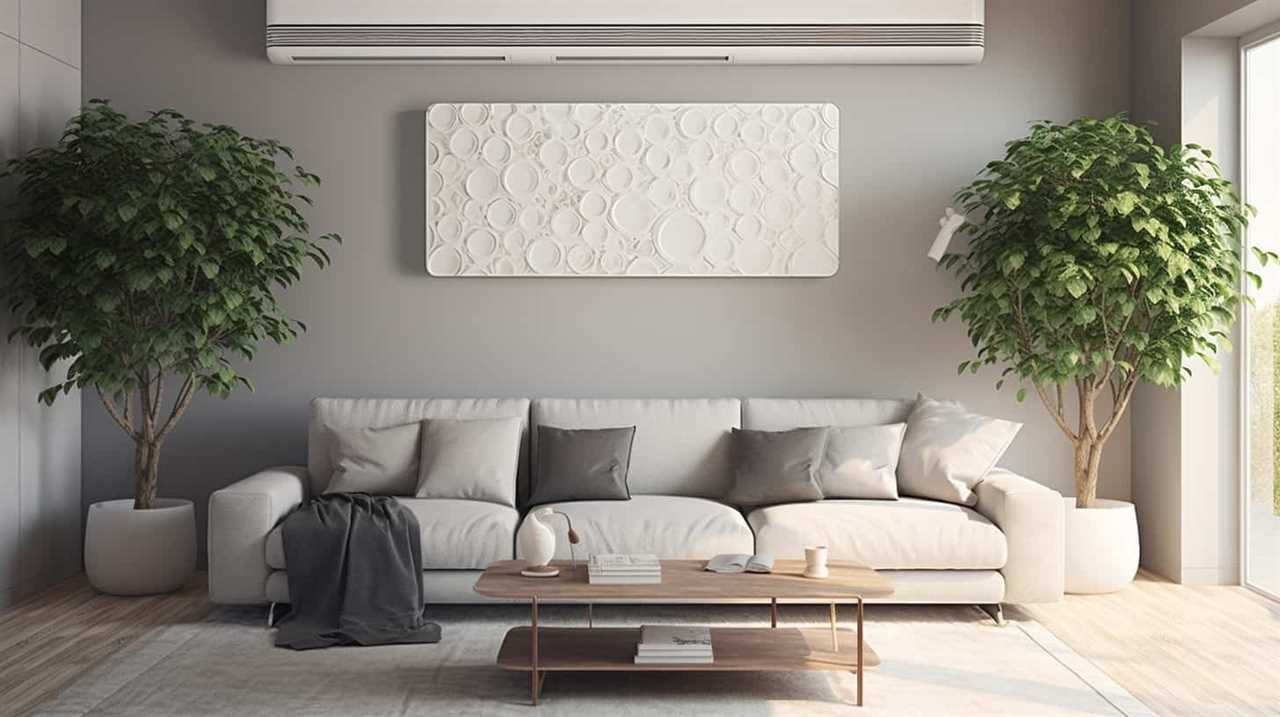
The Benefits of Heat Pumps for Energy Efficiency
While heat pumps may require an initial investment, they can significantly reduce energy consumption and lower utility bills in the long run. One of the key benefits of heat pumps is their energy efficiency. By using a small amount of electricity to move heat from one place to another, heat pumps can provide heating and cooling for your home in a highly efficient manner.
To maximize the energy savings of your heat pump, it’s important to perform regular maintenance, such as cleaning or replacing filters, checking refrigerant levels, and inspecting the outdoor unit for debris. Additionally, there are several energy-saving tips you can follow, such as setting your thermostat to a comfortable yet efficient temperature, properly insulating your home, and sealing any air leaks. By taking these steps, you can further enhance the energy efficiency of your heat pump and reduce your energy bills.
Now, let’s move on to the next section and discuss how to choose the right size heat pump for your home.
Choosing the Right Size Heat Pump for Your Home
Our goal is to find the right size heat pump for our home, so we can effectively and efficiently heat and cool our living space. When it comes to heat pump installation, choosing the correct size is crucial.
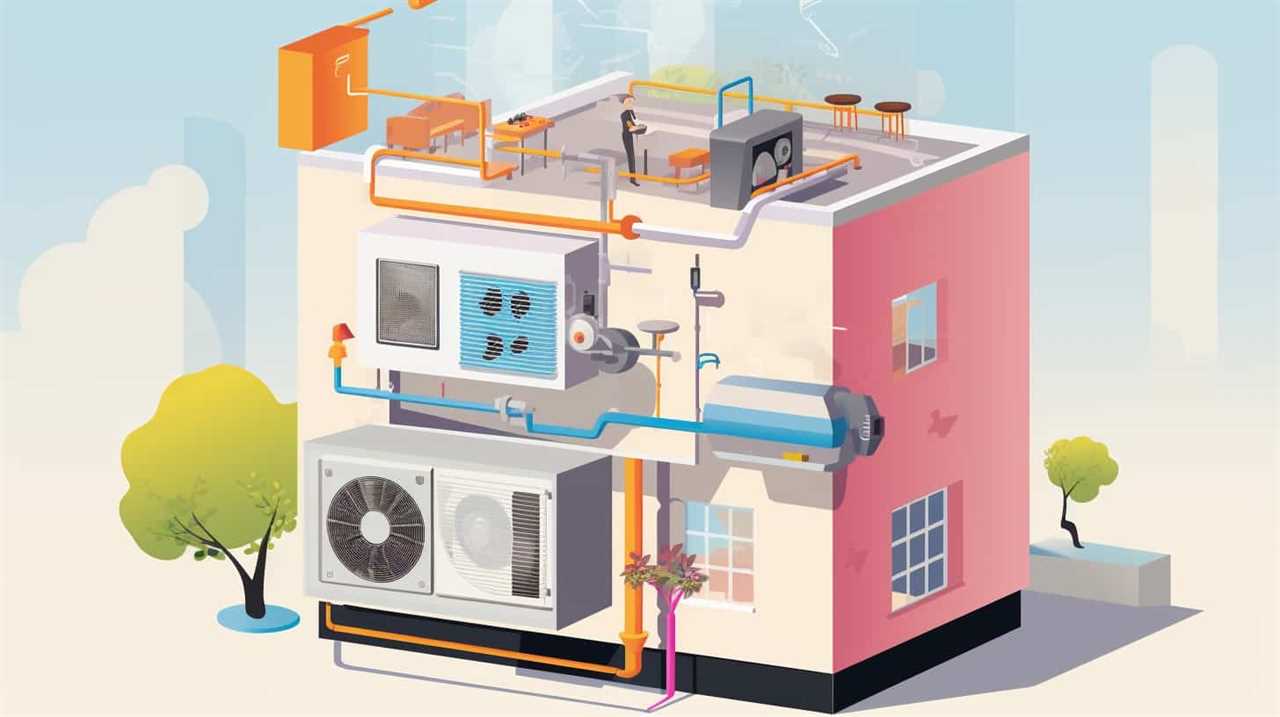
An oversized heat pump will cycle on and off frequently, leading to inefficient energy consumption and increased wear and tear on the system.
On the other hand, an undersized heat pump will struggle to adequately heat or cool the space, resulting in discomfort and higher energy bills.
To determine the right size, it’s essential to consider factors such as the size and layout of your home, insulation levels, and climate. Consulting with a professional can help ensure accurate calculations and proper heat pump sizing, resulting in optimal energy efficiency and comfort.
Optimizing Heat Pump Settings for Maximum Savings
When it comes to optimizing heat pump settings for maximum savings, there are a few key points to keep in mind.

First, setting the ideal temperature can make a big difference in energy usage. By finding the right balance between comfort and efficiency, you can save on your energy bills.
Additionally, using the fan efficiently and programming thermostat schedules can further enhance the savings potential of your heat pump.
Ideal Temperature Settings
We can achieve maximum savings on energy bills by optimizing the heat pump settings with the ideal temperature settings. Here are some energy saving tips for setting the ideal temperature control:
Set the thermostat to a moderate temperature: Setting the thermostat a few degrees lower in the winter and a few degrees higher in the summer can significantly reduce energy consumption.

Use a programmable thermostat: Programmable thermostats allow you to schedule temperature changes based on your daily routine, ensuring that your home is heated or cooled only when needed.
Consider zoning: Zoning allows you to control the temperature in different areas of your home independently, which can optimize comfort and energy efficiency.
Avoid temperature extremes: Setting the thermostat too high or too low can strain your heat pump and lead to higher energy usage. Aim for a comfortable but moderate temperature range.
Efficient Fan Usage
Using the fan on the heat pump efficiently can help optimize the settings for maximum energy savings.

One important aspect of efficient fan usage is regular maintenance. It’s essential to clean the fan blades and ensure that they’re free of dust and debris. This will allow the fan to operate smoothly and effectively, reducing energy consumption.
Additionally, reducing the fan speed can also contribute to energy savings. Many heat pumps have adjustable fan speeds, and lowering the speed can decrease the amount of energy used. However, it’s important to find the right balance, as too low of a fan speed may result in reduced heating or cooling efficiency.
Programming Thermostat Schedules
To optimize heat pump settings for maximum savings, we can program thermostat schedules. By setting up a schedule, we can ensure that the heat pump operates efficiently when needed and reduces energy consumption when not in use. Here are some energy saving tips for programming thermostat schedules:
- Set the temperature lower during times when you’re away or asleep. This reduces the workload on the heat pump and saves energy.
- Use setback and setup periods to adjust the temperature gradually. This helps the heat pump maintain a more stable temperature and reduces energy spikes.
- Take advantage of smart thermostats that allow you to program schedules remotely. This way, you can adjust the settings even when you’re not at home.
- Regularly review and adjust your thermostat schedules based on your changing daily routines and seasonal needs.
Insulation and Weatherization: Boosting Heat Pump Efficiency
When it comes to boosting heat pump efficiency, there are several key points to consider.
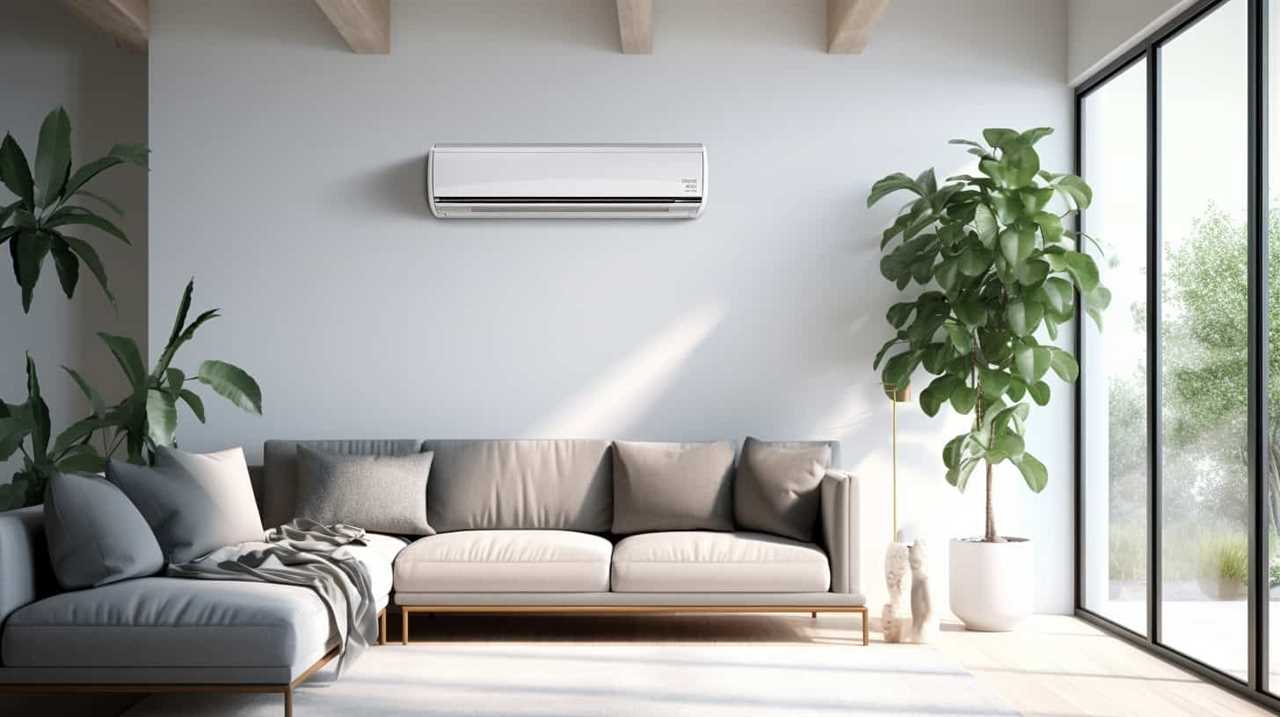
First, sealing air leaks is essential to prevent warm air from escaping and cold air from entering your home.
Proper insulation installation is also crucial, as it helps to maintain a consistent temperature indoors.
Lastly, weatherstripping doors and windows can further enhance energy efficiency by reducing drafts and heat loss.
Sealing Air Leaks
We can enhance the efficiency of our heat pump by sealing air leaks through insulation and weatherization. Air sealing is an important step in reducing drafts and preventing energy loss. Here are some practical ways to seal air leaks and boost the efficiency of your heat pump:
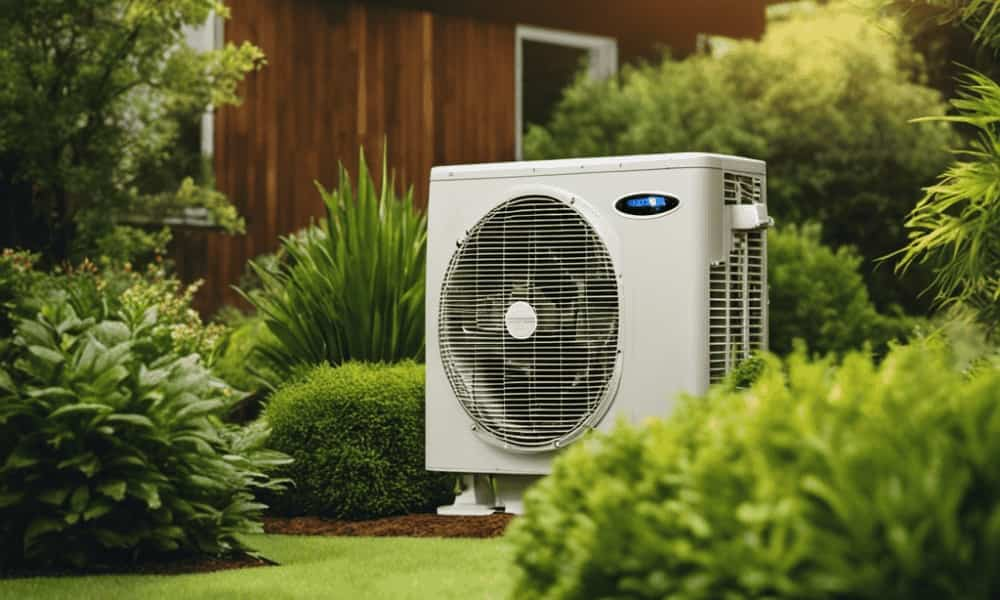
Use weatherstripping: Install weatherstripping around doors and windows to seal gaps and prevent drafts.
Caulk and seal cracks: Use caulk or sealant to fill in any cracks or gaps in walls, floors, and ceilings.
Insulate attic and walls: Properly insulating your attic and walls will help to keep the warm air inside and prevent energy loss.
Seal ductwork: Inspect and seal any leaks in your ductwork to ensure that heated air is distributed efficiently throughout your home.
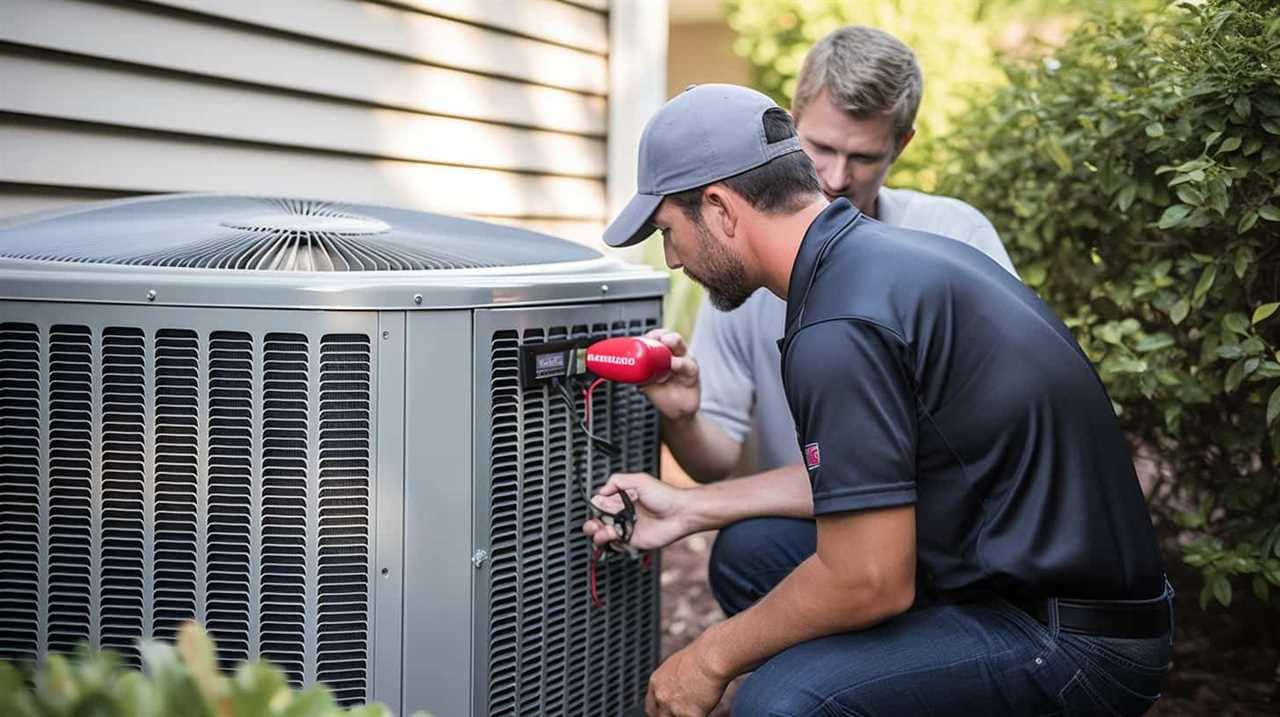
Proper Insulation Installation
Our primary goal is to ensure proper insulation installation and weatherization, as it’s crucial for boosting the efficiency of our heat pump. Insulation acts as a barrier, preventing unwanted heat transfer between the inside and outside of our homes.
There are various insulation types available, such as fiberglass, cellulose, and spray foam. Each type has its own advantages and disadvantages, so it’s important to choose the one that best suits our needs.
When it comes to DIY insulation, there are a few tips to keep in mind. First, make sure to properly seal any gaps or cracks before installing the insulation. This will help maximize its effectiveness.
Second, follow the manufacturer’s instructions carefully during installation to ensure proper coverage and density.
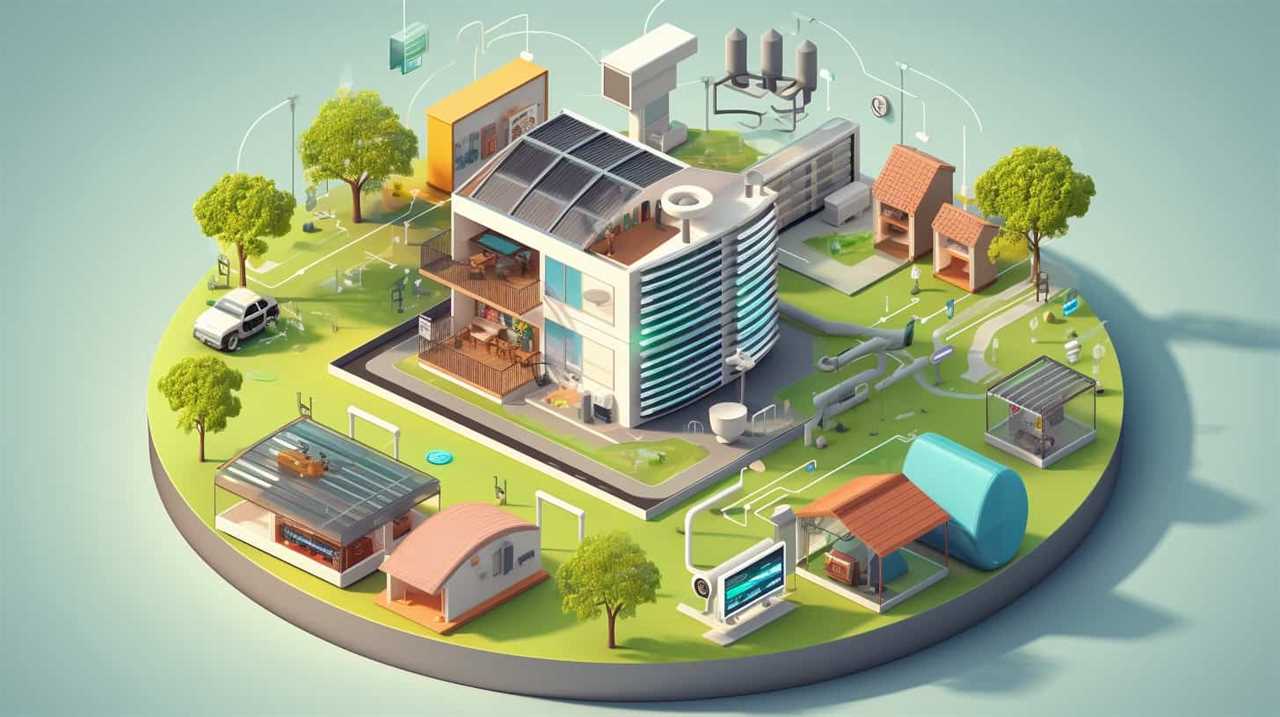
Lastly, remember to wear protective gear, such as gloves and a mask, to avoid any potential health hazards.
Weatherstripping Doors and Windows
Let’s ensure that we weatherstrip our doors and windows to boost the efficiency of our heat pump. Weatherstripping is a simple and cost-effective way to prevent drafts and keep the warm air inside during the winter months. Here are some weatherstripping techniques and energy-saving tips to help you maximize the effectiveness of your heat pump:
- Use adhesive-backed weatherstripping tape to seal gaps around doors and windows.
- Install door sweeps to block drafts at the bottom of exterior doors.
- Apply caulking or sealant to seal any cracks or gaps in window frames.
- Consider adding storm windows or double-glazed windows for extra insulation.
By implementing these weatherstripping techniques, you can reduce heat loss and improve the efficiency of your heat pump.
This won’t only save you money on your energy bills but also contribute to a more comfortable and sustainable home.

Exploring Heat Pump Financing and Incentive Programs
There are various options available for financing and incentives when it comes to heat pump installation. Investing in energy-efficient appliances like heat pumps can be a significant financial decision, but there are programs to help make it more affordable.
Many utility companies offer rebates and incentives for homeowners who choose to install heat pumps, as they’re recognized for their energy-saving benefits. Additionally, government agencies and nonprofit organizations also provide financial assistance and grants for energy-efficient upgrades. These programs can help offset the initial cost of heat pump installation and make it more accessible for homeowners.
It’s important to research and explore these financing and incentive options to take advantage of the savings and benefits they offer.
Now, let’s move on to troubleshooting common issues with heat pumps.

Troubleshooting Common Issues With Heat Pumps
We can address common issues with heat pumps by identifying and fixing the problem. Here are some troubleshooting tips to help you maintain your heat pump and keep it running efficiently:
Check the thermostat settings: Make sure the thermostat is set to the desired temperature and in the correct mode (heating or cooling).
Clean or replace the air filters: Dirty or clogged filters can restrict airflow and reduce the efficiency of your heat pump. Regularly cleaning or replacing the filters can improve its performance.
Inspect the outdoor unit: Remove any debris, such as leaves or grass, that may be blocking the airflow around the outdoor unit. Also, check for any signs of damage or obstructions.

Schedule regular maintenance: Professional heat pump maintenance can help prevent issues and ensure optimal performance. Regular inspections, cleaning, and tune-ups can save you from costly repairs down the line.
Frequently Asked Questions
What Are the Different Types of Heat Pumps Available in the Market?
There are various types of heat pumps available in the market. It’s important to consider the pros and cons of each and factors such as size, efficiency, and cost when choosing one.
Can a Heat Pump Be Used for Both Heating and Cooling Purposes?
Yes, heat pumps can be used for both heating and cooling purposes. They are efficient and offer several advantages, such as lower energy bills and reduced environmental impact.
How Often Should a Heat Pump Be Serviced or Maintained?
To troubleshoot common issues with heat pumps, we recommend regular maintenance. Signs that a heat pump needs servicing include poor performance, strange noises, and increased energy bills. It’s important to address these issues promptly to ensure optimal efficiency.
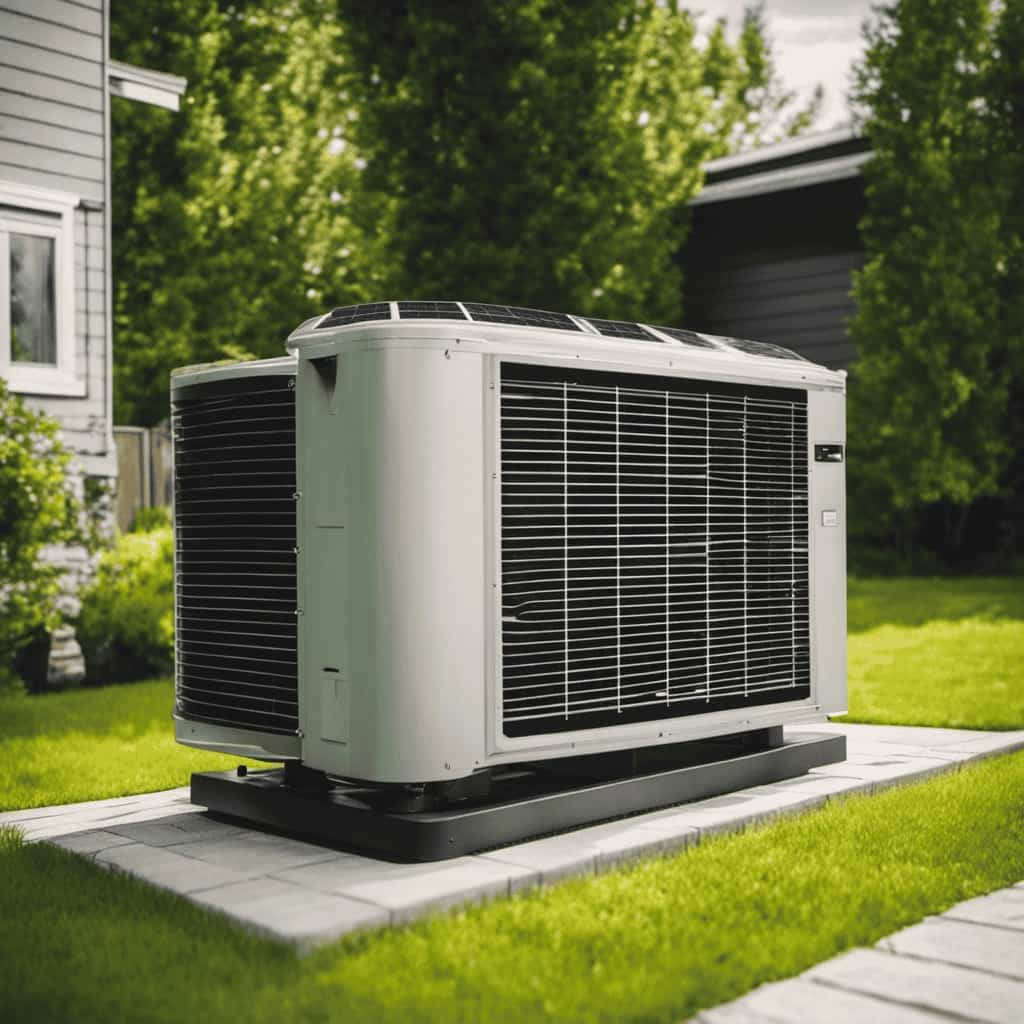
Are There Any Specific Weather Conditions That Can Affect the Performance of a Heat Pump?
Weather conditions can significantly impact the performance of a heat pump. To optimize efficiency in extreme climates, ensure proper insulation, perform regular maintenance, and consider using a backup heat source during extremely cold temperatures.
Can a Heat Pump Be Installed in Any Type of Home, or Are There Any Limitations?
When considering heat pump installation, there are a few factors to consider. While heat pumps can be installed in most homes, it’s important to evaluate factors such as space, electrical requirements, and zoning regulations to ensure a successful installation.
How Can Heat Pumps Help Reduce High Energy Bills?
Solving high energy bills with heat pumps is an effective way to reduce monthly expenses. Heat pumps work by transferring heat between the indoors and outdoors, utilizing a small amount of electricity. By efficiently heating and cooling your home, heat pumps can significantly decrease energy consumption, leading to substantial savings on your bills. Implementing this eco-friendly technology can contribute to creating a more comfortable and budget-friendly living environment.
Conclusion
In conclusion, heat pumps offer a practical and efficient solution for cutting energy bills. By understanding how heat pumps work and choosing the right size for your home, you can maximize energy savings.
Optimizing heat pump settings, improving insulation, and exploring financing options can further enhance efficiency. Just like a well-oiled machine, heat pumps can be the key to unlocking significant cost savings while keeping your home comfortable.
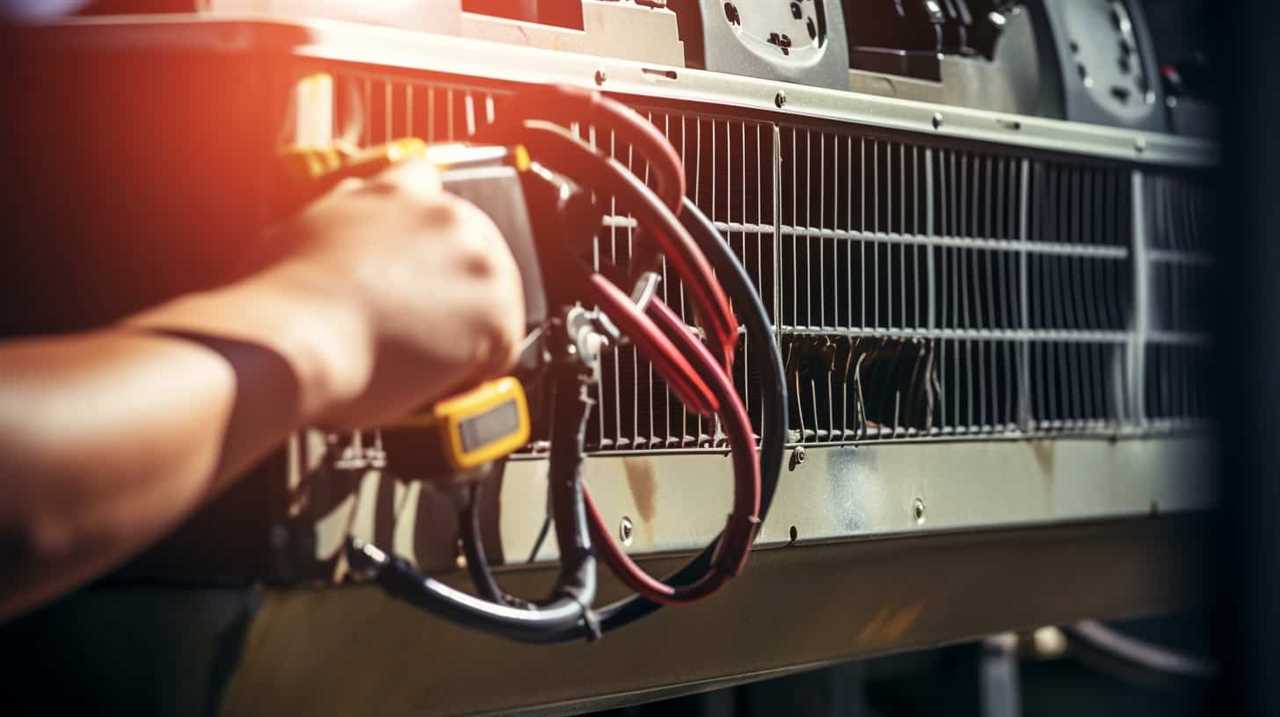
Start saving with heat pumps and watch your energy bills shrink like a deflating balloon.

